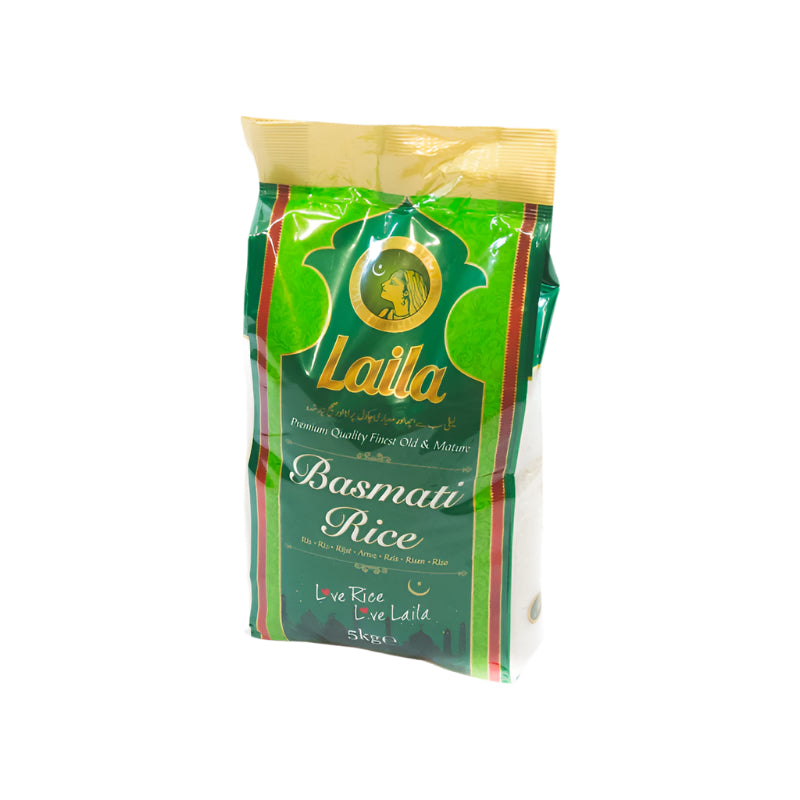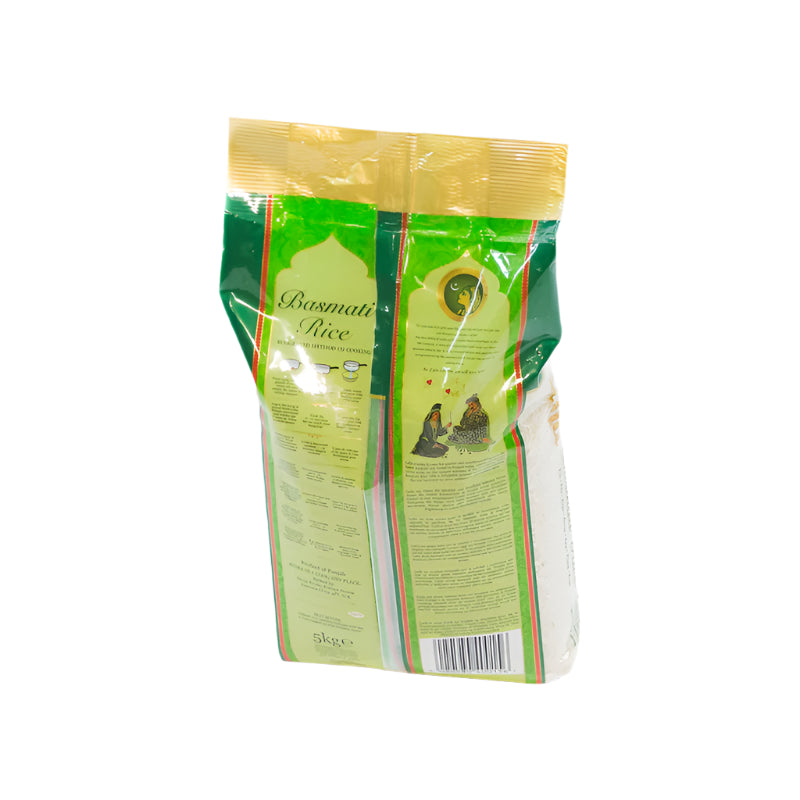Description
Indian cuisine is known for its solid foundations of herbs and spices, including chili peppers, cinnamon, coriander, turmeric, cardamom, fennel, cumin, mustard seeds, and many more. They are well known for taking on a high level of spiciness for almost every dish that is now available in multiple places around the world. However, another popular ingredient in India made its appealing food familiar and welcomed to Asian countries, and that is their very own Basmati rice.
Basmati, which also translates to “full of fragrance”, made it to the superior level of grains in the country that is known to have the largest area for rice cultivation, making it the main crop of India – the first in rank of the largest producer of rice in the world recorded on June 2011 to July 2012. This year (2021), they hold second place in ranks following China. Long, slender grain, flavourful, and fragrantly enchanting Basmati rice are highlighted in many different Indian dishes like curry, pilaf, biryani, and jeera (cumin) name a few.
One particular brand of India has long been known for its quality and excellence in producing Basmati rice. Laila Basmati Rice only brings the finest, seasoned fluffy rice that elevates any Indian dish paired with it; harvested for the past 7,000 years along the highland terraces of Punjab mountains. Unlike any other regular small grains, the Laila Basmati Rice holds an average measurement of 8.4mm in full length. It may be bigger than the average size, but its decadence has only brought out the most nutritious grain-free from cholesterol, extremely low fat, and sugar content. Laila rice is genuinely enriched with organic nutrients, vitamins, and minerals.
Nutritional Value of Laila Basmati Rice
Here are the nutritional contents of Laila Basmati Rice based on the Recommended Dietary Allowance (RDA):
- 150 calories or 35 grams of carbohydrates (per ¾ cup servings)
- 3 grams protein (about 10% RDA and has 8 essential amino acids)
- 6 % iron of daily value
- 15% niacin (for blood circulation and digestion)
- Vitamin B6 (promotes body’s metabolic functions and prevents cardiovascular problems)
- Vitamin B1 (for healthy red blood cells)
- Vitamin E (antioxidant)
- Vitamin K (helps speed up blood clotting)
- 21% magnesium (helps prevent muscle cramps and rise in high blood pressure)
- 19.50mg calcium
- 83.85mg potassium
- 0.20 copper
- 1.23mg zinc
How to Prepare Laila Basmati Rice
The good news is that getting all the necessary nutrients from Laila rice is just as easy as 1, 2, and 3! Similar to preparing and cooking regular rice, follow these steps to ensure the right treatment for this delicate grain.
- Make sure to wash your Laila Basmati Rice to get rid of the starch and other impurities.
- Depending on your preferred softness and fluffiness, you may observe the following measurements and/or method:
- Method:
Soak in cold water for about an hour. Water helps control the desired softness of your Laila rice.
- Ratio:
1 cup of rice = 1.3 parts of water
1 cup of rice = 1.5 parts of water (if you want a bit fluffier finish)
- Lastly, make sure to use the proper non-stick pan for perfectly cooked basmati rice.
Add a small butter and a slight acidity (lemon or lime) to prevent basmati rice from sticking together.





